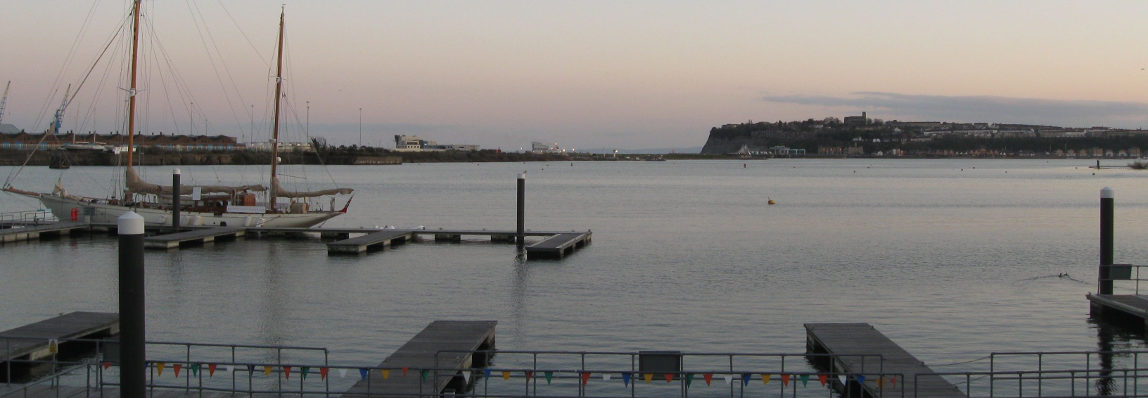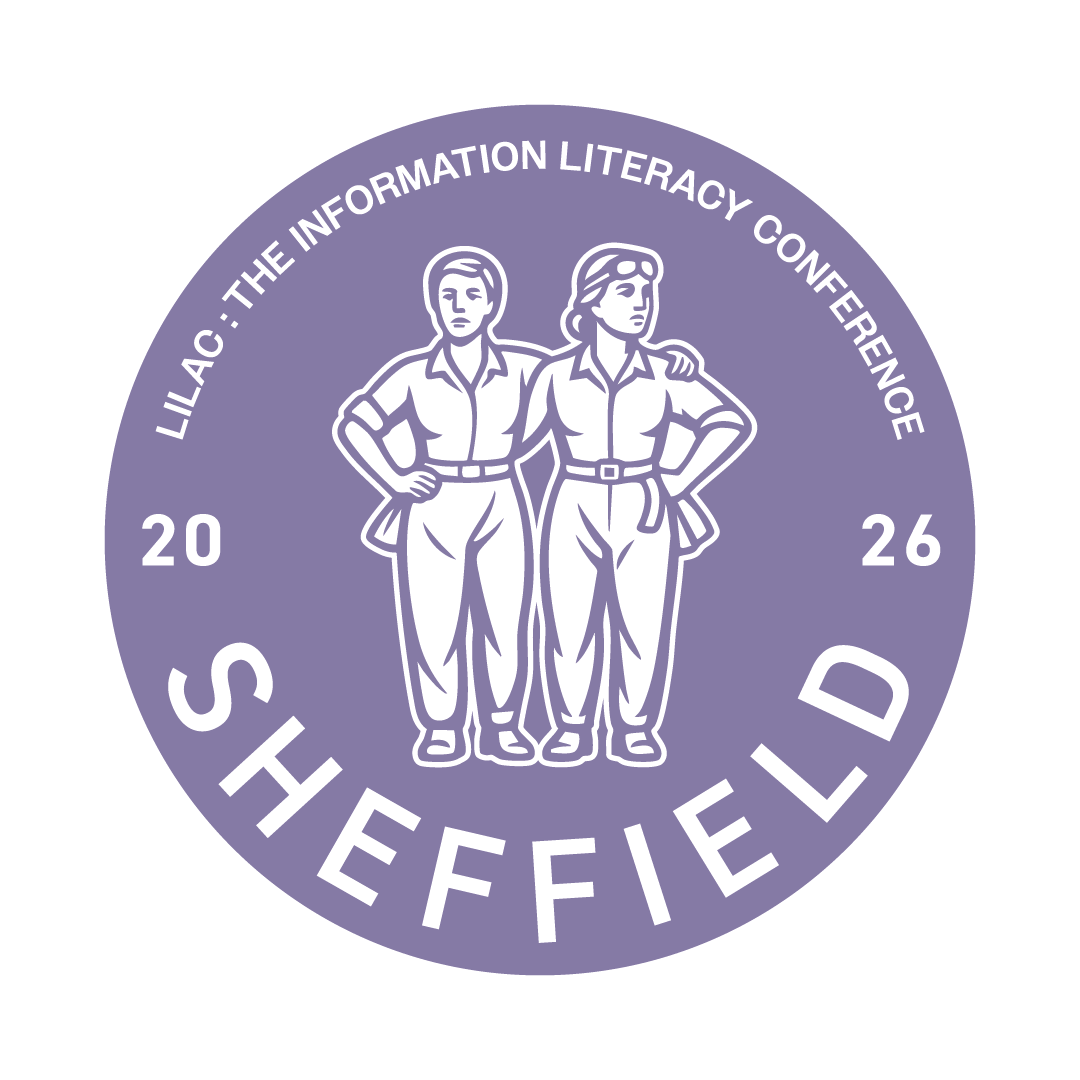
On this page you will find details of:
A selection of photos from the conference can be found on our flickr.
Melissa Highton (Head of Learning Technologies Group, OUCS University of Oxford). Managing your flamingo.
Conor Galvin (Lecturer and Researcher, UCD Dublin). Technologising the HE learning space; red pill or blue?
Patricia Iannuzzi (Dean, University Libraries, University of Nevada). Transforming education for next generation learners.
Lesley Burger (Director, Princeton Public Library). From information literacy to digital citizenship.
The themes for LILAC 2009 were:
Adams, J., Pope, A. & Walton, G. Appeal and applicability: using emerging technologies to enahnce the Assignment Survival Kit.
Allbon, E. Lawbore rocks! Giving students what they want.
Barber, N. The research cycle - using the right tools to prepare excellence.
Barry, E. & Groom, C. R U there? Virtual reference in academic libraries.
Beautyman, W. The road to information literacy: the role of ethnography in 'telling the story' of children's information seeking behaviour.
Bent, M. & Stockdale, E. Integrating information literacy as a habit of learning - assessing the impact of a golden thread of IL in the curriculum.
Bestwick, A. & Taylor, C. The reality of information literacy: does Joe Student actually understand what's going on?
Borg, M. & Stretton, E. My students and other animals. Or, a vulture, an orb weaver spider, a giant panda and 900 undergraduate business students...
Boucher, C. & Chandler, J. Introducing the Research Readiness Self-Assessment Tool (RRSA) at Swansea University (poster).
Bradbury, K. "Maximising your publications impact" - a new workshop for researchers (poster).
Briddon, J. & Swinkles, A. Two physiotherapists, one librarian and a systematic literature review: collaboration in action.
Cavanagh, J. & Kirby, P. Library Network Support Services - championing information literacy across the Shannon Consortium.
Chadbourne, A. & Dalton, P. 21st century stock management.
Cohen, S.F., Cottrell, J. & Bonino, C. Embedding information literacy: an exercise in inquiry.
Corrall, S. & McKinney, P. Exploring information literacy through inquiry.
Cousins, J. & Perris, K. Supporting ourselves to support research.
Crawford, J. & Irving, C. Taking information literacy beyond the 'library': pursuing the school, workplace and lifelong learning agendas.
Davis, S. & Newton, A. 10 minutes of interaction: bite sized information literacy for new university students.
Evans, J. & Harrison, R. 2.0 much to do: how, when and why should library staff find out about web 2.0, and what does it mean for information literacy?
Fieldhouse, M. Supporting research: is there a generation gap?
Forsythe, F. You're good at finding things out (and follow up).
Glass, B. & Griffiths, J. Online information literacy audits - the full story!
Godwin, P. Information literacy meets the mobile web.
Gough, S. & Ridgway, J. Developing an information literacy VLE at Birmingham City University.
Graham, N. & Mogg, R. Are we sharing our toys in the sandpit? A discussion on issues surrounding the re-use and re-purposing of electronic information literacy learning objects in the UK (and Jorum overview) .
Haerkoenen, S. & Thornton, S. Trial and error - student responses to different approaches of embedding information literacy education across five departments.
Harrop, D. & Finney, E. A higher rate of interest and a better return on their investment.
Heino, T. ICT Driving Licence at the University of Helsinki: Meeting the Needs of Diverse Study Fields (poster).
Helminen, P. & Heino, T. ICT Driving Licence at the University of Helsinki: meeting the needs of diverse study fields.
Hibbert, L. & Storey, J. Mapping and embedding information literacy learning objects within a VLE (poster).
Howard, H. & Sidwell, K. Was RIN wrong? A discussion of information-handling training for researchers.
Hunt, C. Investigating the perceived value of information literacy skills for social workers.
Ireland, A. Teaching information literacy to students of the Long-Tail Market: a pedagogical approach.
Isaac, A. & Foster, K. Exploring barriers to foundation degree student use of online information retrieval (the University of Plymouth portal/BU portal) at North Devon College, South Devon College and Yeovil College, 2007-8 (specifically researching IT confidence).
Jackson, C. & Kell, C. Supporting development through reflective dialogue: peer review in practice.
Johnson, Z. & Balman, L. Just give me The Basics: online inductions at the University of Huddersfield Library.
Jones, L. & Friggens, G. Destination information! Taking staff on an information literacy journey.
Jones, R., Shields, E & Glass, B. Help Viola: using an alternate reality game for student induction.
Karjalainen, R. & Salomaki, I. Teaching information literacy in the nursing environment.
Kesselman, M. & Sherman, A. Information literacy and problem based learning: a unique collaboration of librarians, departments and food businesses.
Lanfear, L. & Park, A. Information literacy at Leeds Met: collaboration for best practise (poster).
MacKenzie, A. Shining a light into the dark: defining the roadmap for research support.
Macrae-Gibson, R. & Secker, J. Reflecting on the needs of PhD students: developing information skills at LSE.
Marshall, A. Using information to fight the flab.
McGuinness, C. Journals for learning, journals for teaching: using student accounts of the research process to develop an information literacy module.
McKie, A., Griffiths, L., Kitchen, R. & Delion, A.C. Mapping the Territory: overview of project (poster).
McKinney, P. Information literacy week at the University of Sheffield (poster).
McSweeney, N. & Conrick, M. Graduate information literacy skills: a collaborative SIF funded approach.
Miettinen, A. & Auvinen, K. Gathering skills for life, not skills for schools - an example of providing information literacy education for upper secondary school students.
Miller, M. & Frey, S. The Techno-Senior: computer & internet connections between academic library and retirement community.
Mogg, R. The pathway to success? Using research trails for summative assessment.
Morgan, F., Mann, M. & Turley, R. An evidence-based approach to research support: applying systematic review methods.
Newton, A. & Harrison, A. Enhancing student engagement with knowledge and research through evidence-based information literacy training.
Okolo, S. & Johnson, C. Supporting research through an academic staff questionnaire: preparation, implementation and results.
Packham, C. The evolution of reader education in the British Library's Science Reading Rooms.
Patalong, S. Taking advantage.
Patterson, A. A needs analysis for information literacy provision for research: a case study in University College Dublin.
Place, E. Teaching internet research skills - new directions for the Intute: Virtual Training Suite.
Pope, A. Information literacy for life not just for Christmas.
Redman, J. & Bissett, J. Enter the iSkillZone.
Reidling, A. Learn to learn: essentials of information literacy and research (poster).
Sakarya, B. One-half wisdom (poster).
Salha, S. Information literacy in the Syrian school library context.
Saurina, E. & Faundez, F. Design and validation of an evaluative tool to measure information literacy competencies in Higher Education.
Schneider, M. Reach for excellence: information literacy supports widening participation.
Scott, C. & McKay, B. An information literacy intervention in the School of English at The University of Sheffield using IBL workshops (poster).
Shaw, E., Nyman, J. & Cousins, J. Supporting the collaboration of higher education and the NHS: identifying the role of Imperial College London Library Services.
Shields, E. & Evans, J. Oh no - not another voting session! Interactive devices with a difference.
Thomas, L. & John, K. Portfolios and partnerships: a pilot information literacy project for secondary schools.
Thomson, L. & Foreman, J. Government information literacy in the 'century of information'.
Tilley, E. Measuring the impact of skills training (poster).
Verlander, P. & Scutt, C. Teaching information skills to large groups with limited time and resources: a practical toolkit (poster).
Walker, C. Seeking information: a study of the use and understanding of information by parents and young children.
Walker, S. & Harrison, D. The ISSAC project: integrating study skills into the architecture curriculum.
Walton, G. & Pope, A. Research informed teaching, information literacy and the inquiry-based learning nexus.
Webber, S., Cormie, V., Colledge, D., Dozier, M. & Parker, L. Aspects of information literacy in virtual worlds.
Weetman DaCosta, J. Forget about the 3Rs, our students need the 3Cs: citation, connectors and critical thinking!
Westaway, J. Research-informed teaching and information literacy at the University of Central Lancashire.
Whittaker, S. & Johnson, G. Using Web 2.0 to cultivate information literacy within a medical ethics course.
Whitworth, A. Information obesity - critical theory and information literacy.
Wilson, R. & Tomkins, A. Researchers and reading groups: a new partnership in research support (poster).
Wrathall, K. The SMILE project - a blended learning approach to information literacy.
Wrathall, K. The SMILE project - a blended learning approach to information literacy (poster).
LILAC is great opportunity for our fellow professionals to present their ideas, share best practice and show case new thinking in our sector. If you have an idea then we'd love to hear about it. We have many options for the types of sessions you might run from a symposium to a workshop. Visit our Call for Presentations page to find out how to apply.
Places at this year's conference are likely to be in demand more than ever before. Each year our conference grows increasingly popular and this year promises to be no different. Don't miss out and book your place now for this year's conference.
We look forward to seeing you there!
